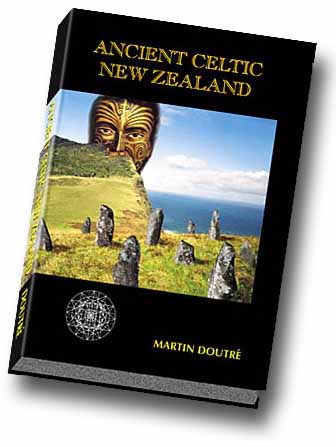Bernard Gadd's quest for security

Yesterday I blogged about the Quest for Security crew and their apparent nostalgia for the 'old New Zealand' of the postwar 'golden years'. Nostalgia can prompt some fine poetry, but if it is translated into politics then it soon throws up all sorts of problems. I think that the last years of Bernard Gadd, the poet, educationalist, and longtime political activist who died recently - I've just been reading the obituary at Jack Ross' blog - show up this danger.
Gadd was in many ways a tragic figure. He came from a staunchly left-wing family, lived most of his life in working class South Auckland, and always tried to combine his commitment to writing with a commitment to political activism. Gadd was involved in many flagship left-wing campaigns, like the movements against the Vietnam War and apartheid, and in the '70s and '80s he wrote and published a series of pioneering books about Polynesian history for schoolchildren. He even wrote the first-ever novel about Moriori life. In the 1980s and '90s, Gadd was an energetic opponent of the neo-liberal 'reforms' that blighted his community and others like it around the country.
In the last twenty years of his life, though, Gadd became an increasingly bitter figure, notorious for his attacks on biculturalism, the Treaty of Waitangi, and the nebulous conspiracies of 'political correctness'. Often Gadd's polemics against these scourges would look back nostalgically to New Zealand 'as it used to be', before the wrong turn of the '80s.
It seemed, to me at least, that Gadd's hatred of the new 'identity politics' that had emerged in the '70s and '80s came from the same place as his hatred of neo-liberalism. Gadd thought that Maori and other 'politically correct minorities' were dividing the Kiwi working class with their talk of historic grievances and ongoing oppression. Why couldn't we go back to the '50s, when there was never any of this sort of strife? Gadd's views are not unique, of course: Chris Trotter has been broadcasting the same ideas to much larger audiences for years now.
I only realised the extent of Gadd's disaffection a couple of years ago, when I became editor of the literary journal brief. I suggested to Gadd, who was an inveterate submitter of manuscripts to the journal, that he send me an essay about contemporary Maori culture, and its relationship to the resurgence of Maori nationalism. A couple of days later, a manuscript arrived. I was expecting that Gadd would kickstart a lively but comradely debate, but the bitterness of his essay, and the fact that it was couched in pseudo-Marxist jargon, dismayed me. I was also amazed that Bernard, who had researched the history of the Chatham Islands for his 1987 children's novel Dare not Fail, would be shameless enough to deploy the myth of the Moriori as a pre-Maori people in his polemic.
I thought, and still think, that Gadd's vision of nineteenth century history, in which a super-efficient British capitalism overwhelmed a static, backward Maori society, was based on an ignorance of the achievements of the market gardening economy that was thriving in Maori-controlled parts of the North Island before the Waikato War began.
Gadd also seems blissfully unaware of the decades of economic stagnation that followed the dispossession of Maori in many areas, as the parasitic profiteers who had demanded the invasion of the Waikato failed utterly to use vast stretches of conquered land, and Pakeha soldiers-turned-yeomen were forced by debts and a lack of markets to walk off their plots. I grew up near the remains of Peach Hill, a postwar community of small farmers that completely collapsed a decade or so after being founded on land confiscated from Maori.
At a deeper level, I dislike Gadd's theory of history, which assumes that 'superior' societies must devour 'inferior' societies, until ruthless capitalist expansion mysteriously transmogrifies into beneficent socialism. Gadd's iron law of 'progress' can easily be used to justify the genocide of American Indians and Australian Aborigines, not to mention the conquest of 'backward' Iraq by 'advanced' America.
I decided that Gadd's essay would need to be accompanied with a reply, but I never got around to either writing or soliciting one. I'm going to post it here, so that readers can decide for themselves whether my comments about Gadd's politics are fair. Long-suffering readers of this blog will know that I've written repeatedly against the use of Marxist concepts to justify colonisation and the destruction of the cultures of indigenous peoples; if you need a rejoinder to Gadd's caricature of Marx as a cynical imperialist, then you can try this essay.
In his tribute to Gadd, Jack Ross talks of the man's feistiness, and his belief that 'Opposition is true friendship'. I'm sure, then, that Bernard wouldn't mind a bit of posthumous polemic!
A culture of history
New Zealand’s New Age of Post-Modernist culture in which slogans and assertions are intellectual currency brighter than logic, reason, fact, or debate has arrived. Discussion of the history of relations between Maori and the New Zealand state offers a striking paradigm of fashionable simple-mindedness. The assumption of control of these islands by the British is continually presented as a narrative of imperialistic culture clash in which brute power invaded a Rousseauean Eden. Indeed it’s become a slogan of Rightist politics that cultures will clash, a dogma ignoring several thousand years of cultural, language, religious coexistence with contests only when something arouses competition between sections of people. Not even imperialism in the sense of a take-over of territory and peoples necessarily arouses resistance.
If we take note of the suggestions of Marx and Engels (whose intellectually provocative ideas the New Age thrusts aside) to look at how a society makes its living in order to gain a clearer view of how that society functions and what its persistent features are, we are more likely to decide that 19th century New Zealand saw a contest of economic or productive systems. The more effective won out, installing its own institutions and society.
The early 19th century Maori economy was of miniscule social groups trying for self-sufficiency. The system was inefficient, constant conflict prevented anything as cohesive as a society being erected on the foundation of the production system, and famine was its familiar:
and today a rangatira
butchered a boy of six years
not a child a slave
starving in a general famine
who stole from his possessor’s kete
the woman’s father struck
with his hatchet the little head
but failed in killing
so tied a rock about the neck
and flung him in a pool …
it’s said the food perhaps
was tapu
[The missionary attends a little dying]
Even when a few hapu later became something like peasant farmers, they had no way of creating sufficient capital to reshape productive capacity to feed the burgeoning total population of New Zealand, let alone to afford necessary infrastructure for distribution or export. The predilection of Maori leaders for holding onto land to allow old ways to linger helped no-one, and right up into the 1880s various hapu were trying to sustain or improve their productive capabilities at the direct expense of rivals, rather than through thorough-going innovation:
which rangatira to follow?
whose karakia to believe?
which greed grip to fear least?
which victories, retreats,
deaths shall light us
safely?
[Battered]
The Treaty of Waitangi has been completely recreated by lawyers ignorant of history and how to study it, and by politicians careless of those issues. Instead of an instrument intended to soften inevitable effects of British possession on indigenes in the war zone that was New Zealand, the Treaty has been transformed into a formal agreement for partnership in government between rangatira and the Crown, a notion inconceivable to either side in the 1840s and of no relevance in the democratic ethnically pluralistic 21st century. Of course a treaty of any sort suited well the purposes of Maori groups whose possession of lands was in 1840 comparatively recent:
the treaty tribes:
old scribbles
of land courts
and tribunal reliance
on the tales of people
whose ancestors came upon us
barely before the pakeha
[forerunners: Moriori and so many more]
The civil wars of the 1860s were our version of enclosures, carried out with the same zeal, ruthlessness, efficiency, and indifference to the suffering of those evicted from their homes and lands. And yet, as Engels and Marx insisted, we can never understand the past and its effects on us if we don’t attempt to see it as it actually was. The enclosures of Britain and the transfers of land in New Zealand enabled capitalism to develop. And without that nothing now would be worth lamenting losing, save for claims of cultural attachment to various parts of the landscape.
Following the wars some of the losers showed themselves attentive students of change:
& afterwards Titokowaru
ebulliently priced
for pastoralists
the bushels
of his cocksfoot seed
[pastoral idyll]
Of course the effects on those who lost primary resources and on those who gained them are plain yet:
this time the red’s not
imperial Brits
only the people with maybe no
phone car job house
of their own
spills across
the places of the iwi …
and the roller-door-store
city blocks
around them the paddocks
tipuna owned
glow page upon page
with the emerald show
of wealth
[the atlas of deprivation, 2001]
It’s literary cliché in many societies that the world’s best inducers of guilt are mothers. They have been supplanted by a host of indigenous leaders whose skills at inducing in millions of middle-class descendants of settlers a sense of shame at the successes of capitalism and a conviction that present and future generations ought to pay indigene-geld to whoever’s forebears lost the economic competition to provide fruitfully for the nation.
At the very same time, the compensation and guilt hucksters are fervent not only for capitalism but for its positively 19th century reincarnation as a financially imperialistic global free market. I dare say Marx and Engels would have approved, pointing out that such people have aligned themselves with the dominant trends of modern capitalism, have flowed with the economic and fiscal tides. And would have nodded to see the tenuous 19th century iwi become capitalistic corporate entities and creating an entire contemporary warrior class of lawyers, entrepreneurs, politicians, consultants, and public relations gurus.
What the pair might have queried was the whereabouts today of indigenous and other organisations expressing both the frustrations of those exploited by the capitalists and a determination to make a new, improved, fairer productive system for New Zealand which enhances our humanness. I doubt if they’d be impressed by what they’d see instead: a Romantic desire to meander again in the days before the pakeha or in some imagined pre-capitalist Avalon (but with steel, stoves, cell-phones). And they’d be asking where are the writers, artists, musicians enthusiastic for the fact that any economic system is always the author of its incipient replacement ... though they’d recognise plenty of well rewarded writers and the rest whose works show no interest in any such conception:
a literary icon I’ll be
and seekers of fame’ll emulate me
and spend quite a while
in business-like style
extolling their works for a fee
[iconic]
Bernard Gadd
























